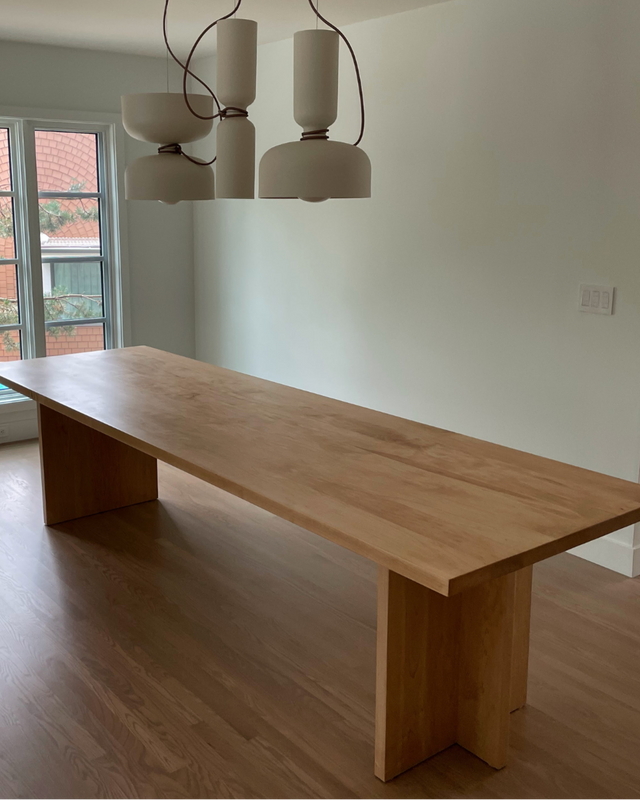How to Tell if a Table Is Truly Handmade (Not Just Marketed That Way)
Let’s be real:
“Handmade” has become a buzzword.
It’s slapped on everything from overseas imports to flat-packed furniture kits. And while we love that more people are looking for craftsmanship, we’ve also seen way too many customers feel misled.
So how do you know if a table is actually handmade and not just marketed that way?
Here’s how to tell the difference.
1. True Handmade Furniture Has Tool Marks, Not Templates
Mass-produced “handcrafted” furniture is often CNC-machined and assembled by hand. That’s not the same as building from scratch.
✔ Real handmade pieces have subtle irregularities hand-sanded edges, small tool impressions, or unique joinery that machines can’t replicate.
Look underneath. Look closely. The signs are there.
2. You Can Talk to the Maker
If you can’t talk to the person or team who built your furniture, it probably wasn’t truly handmade.
At YEG Woodcraft, we don’t just build we collaborate.
You’ll know who’s making your piece, and you’ll see it come together every step of the way.
That’s part of the experience. And it’s how real relationships with real makers begin.
3. Joinery Tells the Truth
Handmade tables are designed with intentional joints:
-
Mortise and tenon
-
Dowel or floating tenon
-
Breadboard ends to manage wood movement
If all you see is glue and screws holding things together, it wasn’t built to last or to move naturally with real wood.
4. Mass-Made Furniture Is Often Veneered
This is a big one. Most factory-made tables labeled “handmade” are actually made with MDF or plywood cores, covered in wood veneer.
It looks good at first. But it can’t be sanded, repaired, or aged gracefully.
True handmade furniture is solid hardwood through and through meant to evolve with your home, not fall apart when the humidity shifts.
5. No Two Handmade Pieces Are Identical
In real woodworking, even if two tables share the same size and wood type, they’ll still look different.
Why?
Because grain patterns, tone, and hand-finishing vary.
If what you’re buying looks exactly like the listing photo, again and again it was likely mass-produced.
6. Handmade Furniture Takes Time
If a brand promises “custom handmade furniture” with delivery in 2 weeks? That’s a red flag.
At YEG Woodcraft, we typically take 6–10 weeks to build a piece. Why?
Because we’re not pulling something off a shelf.
We’re selecting the wood, drying it properly, joining it with care, and finishing it by hand.
Quality takes time. And that’s a good thing.
7. It Feels Different Because It Is
When you run your hand over a real handmade table, you feel it.
The weight. The edge work. The grain.
It doesn’t feel like a factory finish it feels alive, grounded, and personal.
That’s the difference.
Real Craftsmanship Speaks for Itself
If you’re looking for something built to last not just look nice for a season pay attention to more than marketing.
Ask questions. Get curious. Look under the surface.
Because real handmade furniture is more than a trend.
It’s a standard. One that we’re proud to uphold in every single piece we build here in Edmonton.

